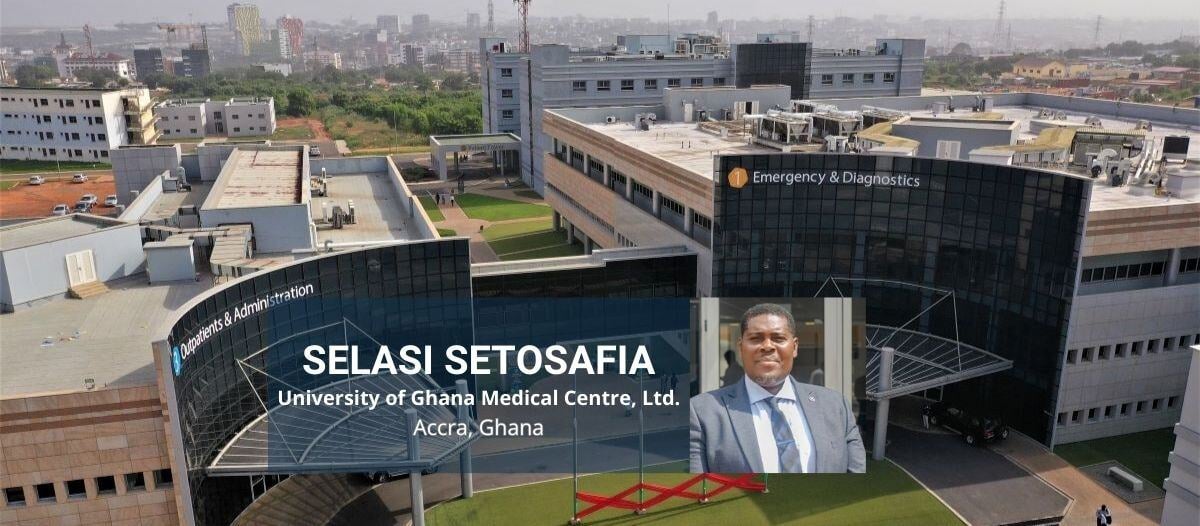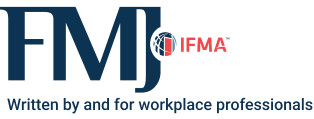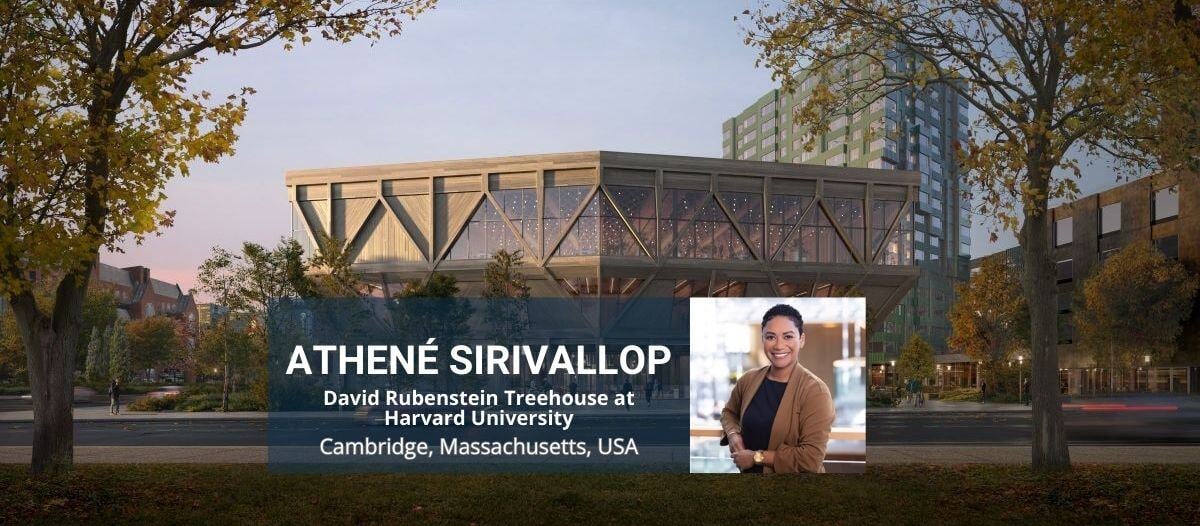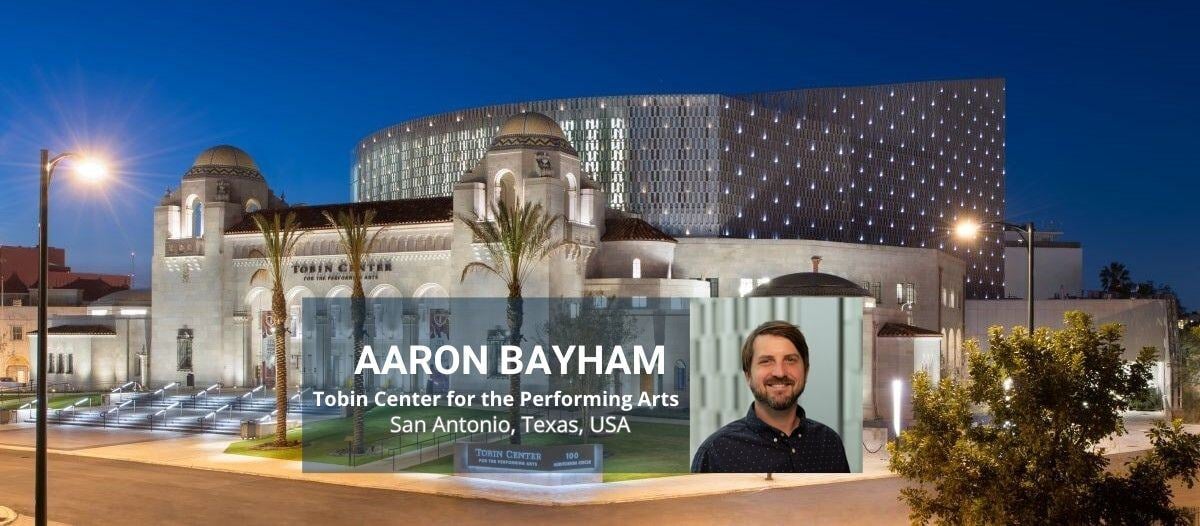My Facility: Selasi Setsoafia
The University of Ghana Medical Centre Ltd.

.jpg?width=1200&height=675&name=DJI_0865%20(1).jpg) Tell us about yourself and how you got into FM.
Tell us about yourself and how you got into FM.
Selasi Setsoafia: I worked as an architect and project manager for more than 15 years and was interested in post occupancy evaluation. As an architect, I believe that the building’s life cycle reflects how well the design meets the needs of the occupants, facilitates maintenance and improves the general wellbeing of the occupants. I got into FM while working as an architect for a private university where I was involved in remodeling spaces to suit changing user requirements and advising on maintenance issues. I saw the difficulty in accessing certain portions of the buildings to undertake cleaning and general maintenance works, which could have been made easier if maintenance had been thought of at the design stage. The importance of the input of the facility manager at the design stage was thus evident to me and as such I undertook a Master of Science in facilities management degree. I am head of facility management at the University of Ghana Medical Centre, Ltd. (UGMC) and bring to the role my knowledge, expertise, and experience garnered in architecture, construction, project management and FM.
 What is UGMC?
What is UGMC?
The UGMC is a quaternary medical care center on a 43.42-acre site on the campus of the University of Ghana, Legon in Accra. The UGMC is a 1,000-bed facility that seeks to be distinguished for world-class patient care, training and research. The first phase of the UGMC project was a 650-bed facility in 2017 and the second phase extended the facility to a 1000-bed medical center in 2022.
The clinical services section of the UGMC has the largest intensive care unit in Ghana as well as the second largest cardiothoracic center in the country. the medical training and simulation center which is the largest in West Africa, is well equipped to offer health and non-health workers with training involving patient simulation, simulated clinical environments, simulated virtual procedure stations, and simulated standardized patients. The Medical and Scientific Research Centre’s focus areas include epidemiology/clinical trials, cardiovascular genetics, maternal fetal medicine, regenerative medicine, transplant medicine, infectious diseases and big data science.
The UGMC is at the precontract stage of putting up an inpatient clinic trial unit with a world class laboratory unit that includes a well-equipped BSL2 laboratory.
What is day-to-day life like at UGMC?
The UGMC has about 1,500 full-time staff and receives more than 300 daily clients and a considerable number of visitors who access different services, especially healthcare. We also use a staff of outsourced FM providers such as security and janitorial companies that number more than 100 on a given day.
The FM team is always on call, ready to support. We ensure all the activities in the Medical Centre happen in a safe, secure, clean and comfortable environment while staying in the background like invisible puppeteers. We have morning meetings where we plan our day with assignments for the different departments and discuss safety, infection prevention and control, appropriate use of PPEs and risk management associated with our work in a hospital setting. Morning inspections and all-day monitoring across different disciplines are carried out both on in-house and outsourced service areas and scheduled preventive maintenance activities on all plant, machinery and equipment as well as any outstanding corrective maintenance activities are addressed. By virtue of being in a healthcare setting, the FM team is always on the alert for emergencies, and we typically work beyond the normal shift hours to resolve issues.
What makes the UGMC unique and what kind of unique challenges do you face?
 As the only quaternary medical center in Ghana which also provides training and simulation facilities that are unique to the West African subregion, we must cater to a varied clientele base with different needs all the time. Ensuring that visitors and clients have a seamless experience across our campus is paramount. Although our facility is open to everyone, we have VIPs in-country and from the West African subregion who we must create a curated experience for from the airport and VIP carpark all through the treatment process whilst ensuring privacy and security.
As the only quaternary medical center in Ghana which also provides training and simulation facilities that are unique to the West African subregion, we must cater to a varied clientele base with different needs all the time. Ensuring that visitors and clients have a seamless experience across our campus is paramount. Although our facility is open to everyone, we have VIPs in-country and from the West African subregion who we must create a curated experience for from the airport and VIP carpark all through the treatment process whilst ensuring privacy and security.
The second phase of our construction involved partition of spaces in the existing buildings and extension works to some of the buildings. We managed these activities while the hospital was operational, and had to be mindful of indoor air quality, staff and visitor movements, routes for construction workers and materials, security of inpatients and a host of operational considerations.
Maintaining optimal air conditioning and ensuring that the right humidities are kept in the clinical and non-clinical spaces whilst allowing interaction between those spaces is a juggling act. The use of a building management system enables us to control our HVAC system to meet the thermal comfort required in diverse spaces although maintaining optimal temperatures is always a balancing act between satisfying outpatients, visitors and medical staff.
Working in a healthcare facility means the FM team and the outsourced maintenance service providers are constantly exposed to possible infections, therefore training on infection prevention and control, safety and proper use of PPEs is always ongoing. Maintaining buildings that serve functions means we always must be cognizant of our surroundings to act and prepare ourselves appropriately for the spaces that we are working in to prevent cross infection, contamination and injury. Scheduling of maintenance work on plant/machinery or medical equipment can sometimes be affected by daily operations in areas such as operating theatres and the ICUs. Janitorial and maintenance work must be scheduled so as not to disrupt clinical services and when it is required during peak hours we try to be as unobtrusive as possible.
How much space do you manage and how is it used?
 The seven main buildings on the UGMC premises cover a total of 486,000 sq. ft with parking for about 800 cars and provision available to park an extra 400 cars if needed. The rest of the land is taken up by landscaping and undeveloped land for future development.
The seven main buildings on the UGMC premises cover a total of 486,000 sq. ft with parking for about 800 cars and provision available to park an extra 400 cars if needed. The rest of the land is taken up by landscaping and undeveloped land for future development.
The main buildings on the premises are the
- Emergency and Diagnostics Block (three-story building the houses the emergency department, laboratories, operating theatres, ICU, medical imaging department and the central sterile supply department),
- Women and Children Block (four-story building that houses the obstetrics and gynecology departments, pediatrics departments, VIP wards, and IVF department),
- Outpatients and Administration block (two-story building that houses the outpatient department, dialysis unit and the hospital administration),
- Patients Tower (five-story building that house most of the inpatient wards, oncology department and physiotherapy department),
- Medical Training and Simulation Centre Block (three-story building that houses the medical training center, medical and scientific research center, medical library and IT department),
- Residential Blocks (four-story and two-story)
- Maintenance and Logistics Block (two-story building housing the warehouse, kitchen, laundry, mortuary, medical stores, general stores, maintenance offices and workshops)
There are other structures such as the water treatment plant, sewage treatment plant, garbage shed and security guard posts that make up the rest of our facility.
Tell us about your FM team.
The FM team is made up of about 60 dedicated and hardworking staff comprising engineers, technologists, technicians and artisans in several departments: biomedical engineering, electrical engineering, estates, hospitality, mechanical engineering, mortuary, transport and security. FM work is delivered through these departments in a collaborative manner and we cross-train as much as is practicable. The in-house FM team oversees the work of outsourced providers and ensures that their work does not disrupt or adversely impact the delivery of services to clients. Outsourced FM service providers handle catering and laundry services, janitorial services, manned security, landscaping, medical and environmental waste disposal, medical equipment maintenance and plant maintenance.
What makes our FM team unique is the camaraderie and shared passion and commitment to ensuring that every visitor and client to our facility has a memorable experience right from the main entrance through to all the areas of the facility that they access service. It has not been an easy task delivering on such an ambitious mandate, but we have largely succeeded in giving visitors and clients to our facility an unforgettable experience.
 How is the FM industry growing in your region?
How is the FM industry growing in your region?
FM is gradually gaining acceptance in the region and seeing adoption as a discipline by key industries which in the past were only concerned with either estate or property management. The need for a holistic approach to maintenance of facilities to ensure longevity of buildings, physiological and psychological comfort of users and sustainability has seen the growth of FM. Most companies are embracing the client-centric approach and are therefore engaging the services of FMs to improve and complement their core operations. Their brands are now seen in the light of customer experience and therefore it has become imperative to create the right ambience through comfortable, highly maintained and aesthetically pleasing spaces.
FM education has also played a pivotal role in creating awareness and growing the industry. Universities now offer programs in FM and the professional certification route offered by IFMA has afforded people the opportunity to be trained in the FM field.
What are some FM challenges you face at UGMC that are common across the FM industry?
The rising cost of utilities has meant that we must rethink energy consumption and ensure energy efficiency through energy conservation awareness creation and use of technology such as occupancy sensor switches. We engage and educate staff, including those of the outsourced service providers, to adopt energy conservation practices and we ensure compliance through monitoring and evaluation. We have also engaged consultants to undertake an energy audit of the facility and the medium-term plan is to incorporate renewable energy in the form of solar energy to complement grid and genset power.
The absence of a vibrant and resourced plant and equipment manufacturing industry in Africa adversely impacts the FM industry. Most of the installed plant and equipment are sourced outside Africa making replacement of faulty parts and stocking of spare parts very expensive. The dearth of OEM parts in-country for plant and equipment affects preventive and corrective maintenance because lead times for such items stretch from several weeks to months. Without proper contingency planning, downtimes for faulty plants and medical equipment can lead to disruption in service provision.
What do you like best about what you do?
I enjoy being part of a team that contributes meaningfully to making work enjoyable for staff and the recovery journey easier for patients. The opportunity to learn from professionals in different fields also makes every minute worth it.
Read more on My Facility
Explore All FMJ Topics





.jpg?width=300&height=400&name=Training%20at%20the%20simulation%20Centre%20%20(1).jpg)


